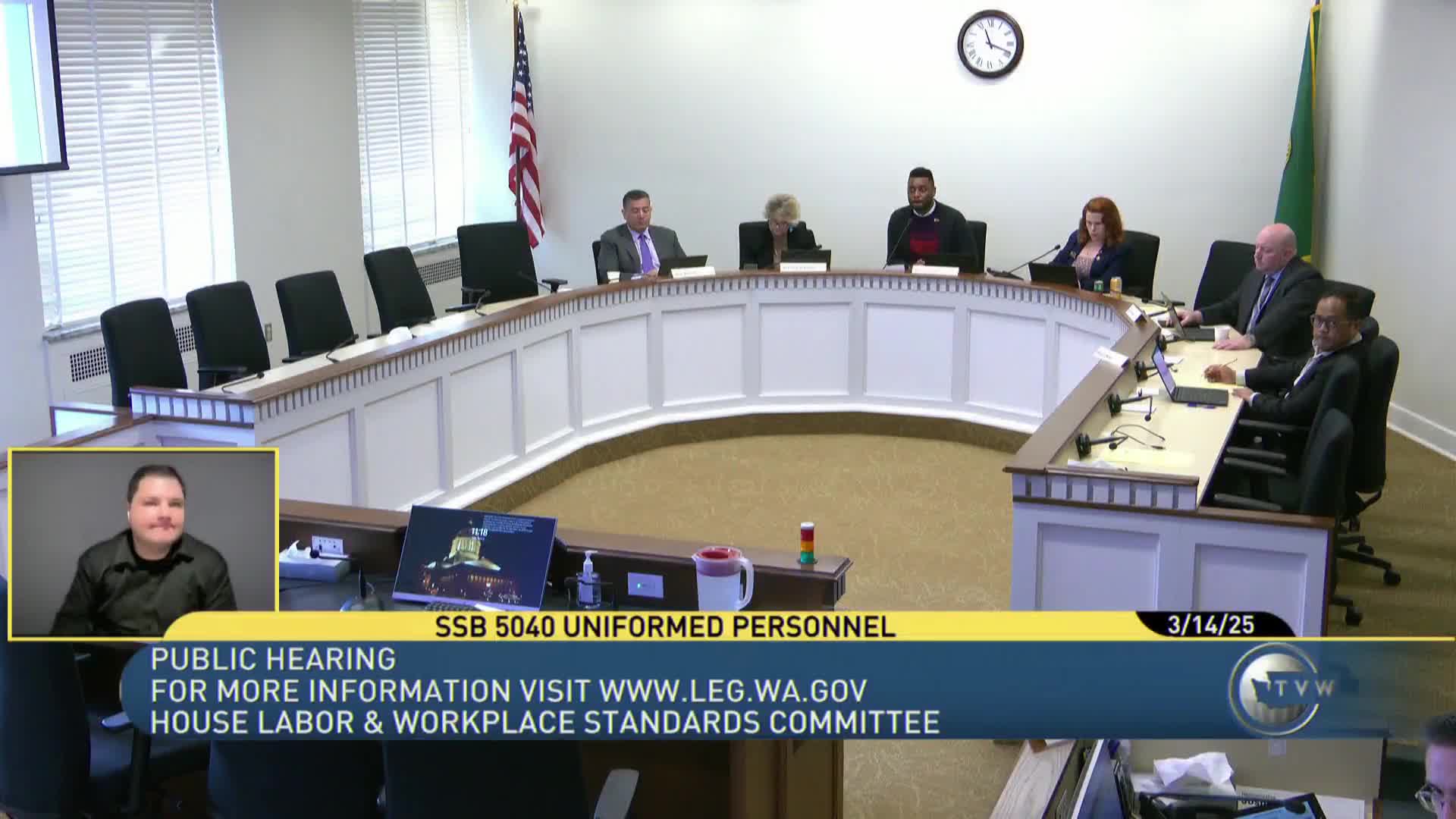Bill to expand interest arbitration to small jurisdictions prompts debate over cost and fairness
Get AI-powered insights, summaries, and transcripts
Subscribe
Summary
At the Labor & Workplace Standards Committee hearing Friday, March 14, members heard Substitute Senate Bill 5040, which would expand interest arbitration to uniformed law‑enforcement personnel in all jurisdictions and to municipal airports.
At the Labor & Workplace Standards Committee hearing Friday, March 14, members heard testimony on substitute Senate Bill 5040, which would expand interest arbitration rights to uniformed law‑enforcement personnel in all cities, towns and counties regardless of population size and extend those rights to law enforcement employed by municipal airports.
Staff said the bill extends interest arbitration to municipal airports and small jurisdictions that currently lack access to binding interest arbitration, pointing to a history of changes in the population threshold that defines covered uniform personnel. Opponents representing small cities and counties, including the Association of Washington Cities and the Washington State Association of Counties, said the change would impose disproportionate costs on the smallest jurisdictions. Candace Bach of the Association of Washington Cities noted that some affected cities have general funds under $1 million and that arbitration can cost jurisdictions tens of thousands of dollars in advisory and arbitration expenses.
Mayors and county officials testified about local budget impacts. Matthew Lund, mayor of Cle Elum, said his municipal police department’s budget already comprises over 50% of the general fund and estimated arbitration costs could equal the annual wages of one to two officers, creating “real issues for public safety.”
Police and public‑safety labor representatives urged passage, characterizing the bill as an equity measure because uniform personnel lack a right to strike. Jeff DeVere of the Washington Council of Police and Sheriffs said the measure provides a process — including mediation through PERC — and that only two interest‑arbitration cases between police and local governments had moved forward in the last five years. Brenda Weist of Teamsters Local 117 said interest arbitration addresses a bargaining power imbalance for small jurisdictions and noted similar recent extensions (for example, 911 operators) that provide comparable remedies to adjacent classifications.
Committee members questioned budget and implementation details; witnesses emphasized the bill’s role in creating parity for uniform personnel who cannot strike. The hearing record shows the committee closed testimony on the bill after panels for and against presented their views.
